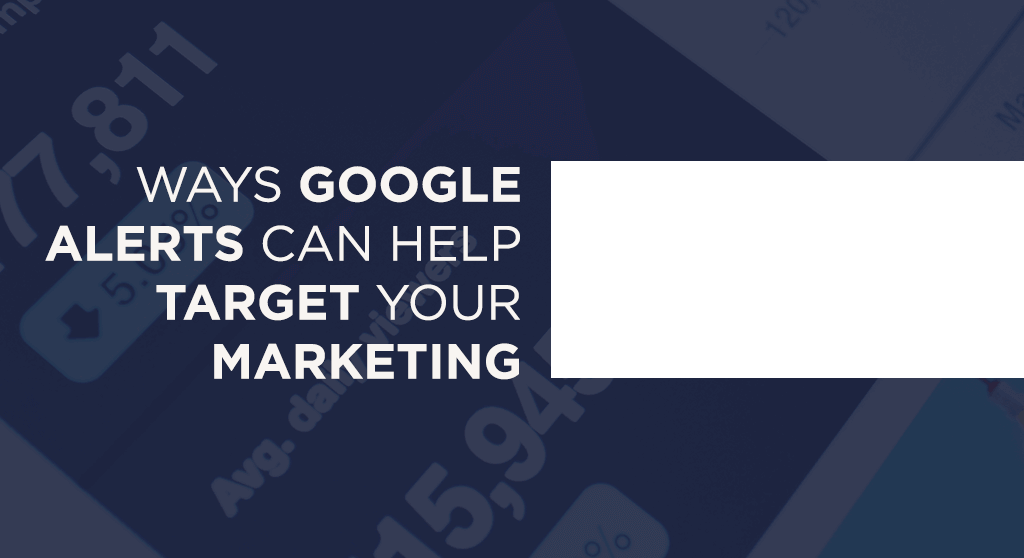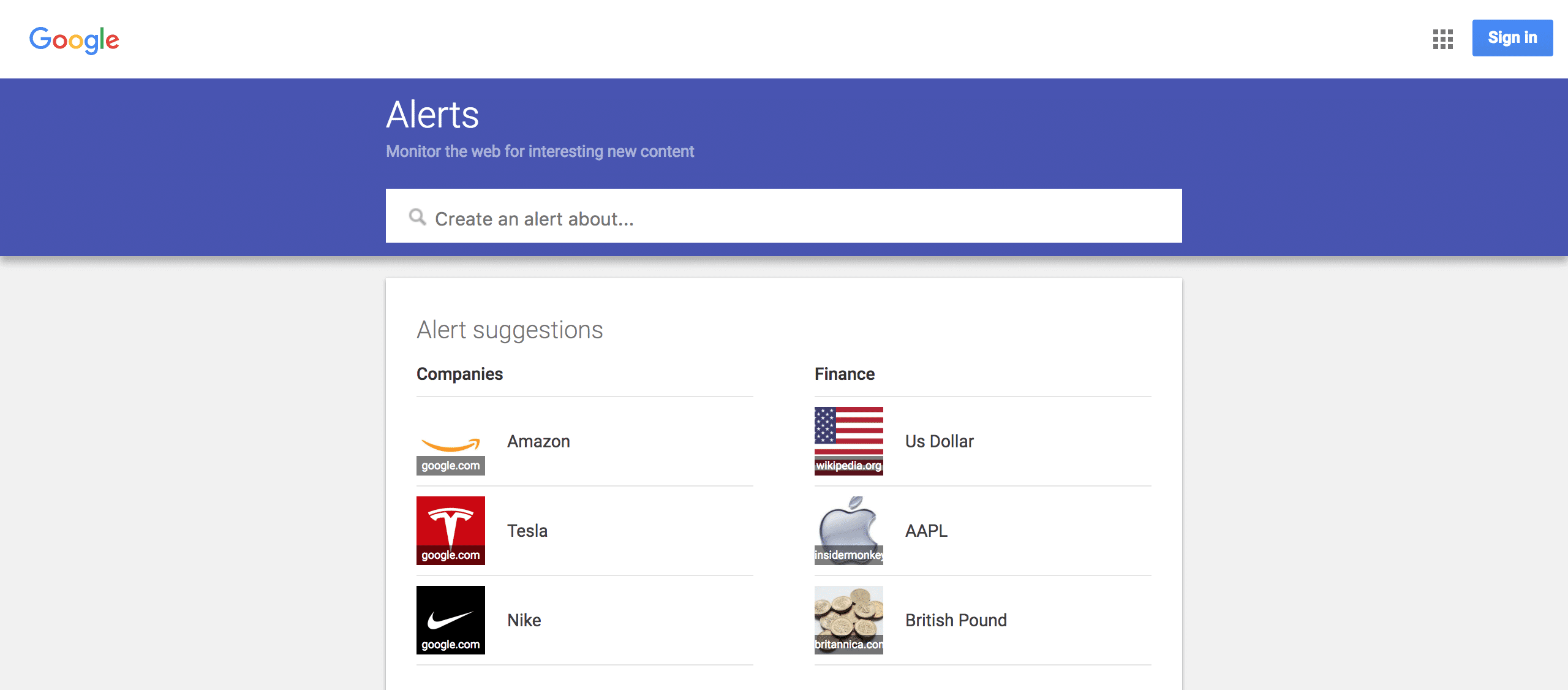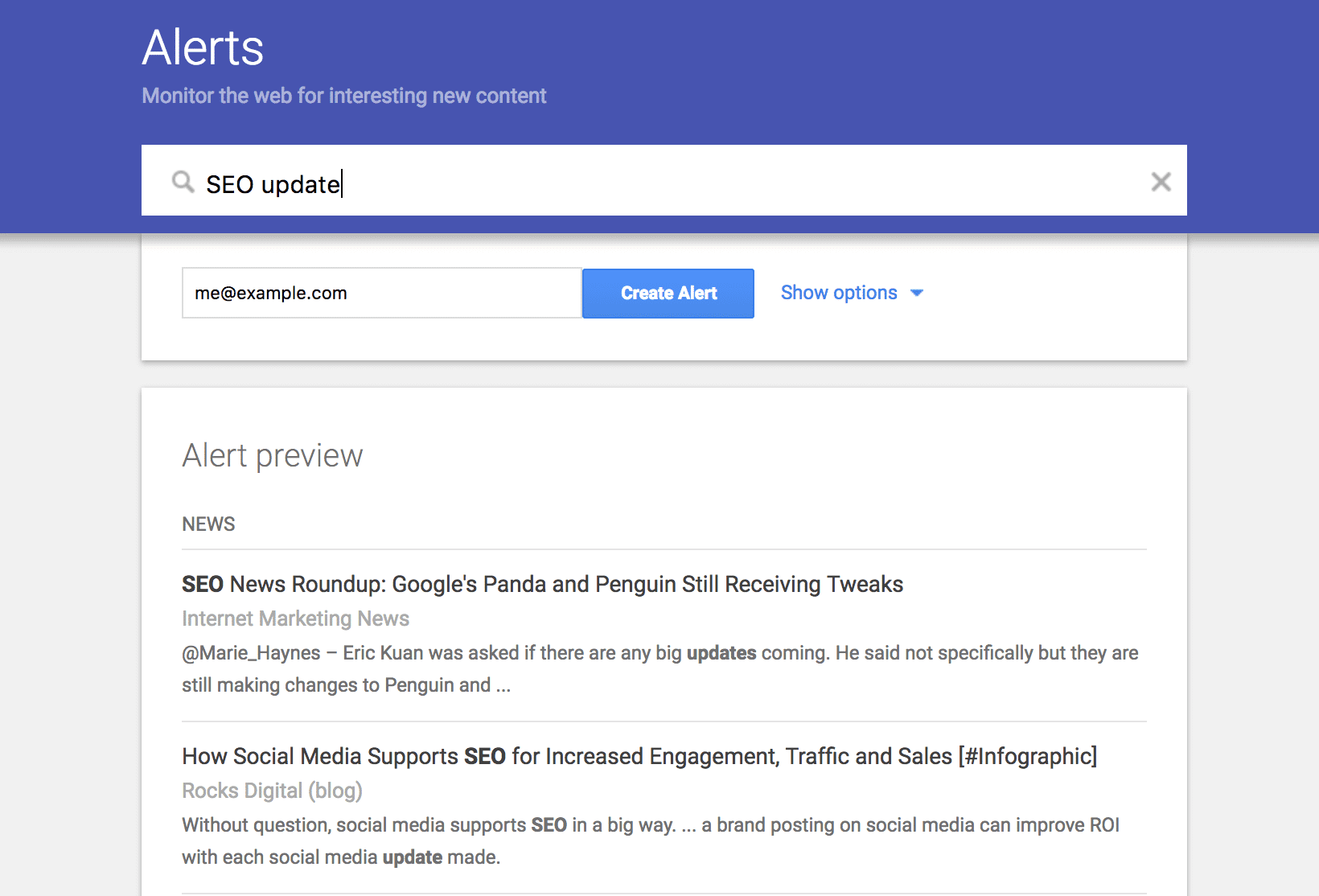
Use Google alerts to show you what you need to know before you need to search for it.
You know those people who always seem to be the first to know about breaking news or industry updates? Well, they’re on to something—and now you can be, too.
Google alerts aren’t new, but if you missed the memo… well, maybe you should have set up a Google alert to notify you? And even if you know about Google alerts, you may not have thought to apply them to your content marketing strategy.
If you haven’t, it’s about time you did. Google alerts can be a life saver when it comes to finding new ideas, staying informed, and monitoring your brand reputation online. Here are four top ways you can use them to kick your marketing game up a notch and never miss a beat.
1. Follow local events.
Is something major happening in your area? A festival? A new downtown development? A career fair? Local news can help you learn about things that could affect your business, and they give you ideas to write about if you want to build your local Ann Arbor SEO.
For instance, if you’re a small bookstore, you will want to know about any events happening at the nearby library branches. Or, if the nearby university is offering a promising speaker series or an author event, that’s information you might want to send out in your next email newsletter. It can be a lot to keep track of if you have to check each website individually, but Google alerts can bring that directly to your inbox.
2. Track industry updates.
If you’re in the tech industry, you know how quickly new updates can affect your business. We live on data, and those of us who are most successful know how crucial it is to stay abreast of the latest research. If we aren’t running it ourselves, we certainly want to hear about it from others.
But this doesn’t just apply to the tech industry. Unless news in your corner of the business world runs very slowly, you don’t want to be caught off-guard by a product release you never heard about or a new regulation that passed you by.
3. Stay on top of breaking news.
It seems like every day we hear about another data breach or hacking attempt. If you specialize in computer security, don’t you want to be one of the first to have a blog post out on it? If you blog about book reviews, don’t you want to be the first to write about the upcoming novel from one of your favorite authors? Of course you do. And now you can! Set up a Google alert.
It’s not just about being the first, though. For some businesses, having a timely update is important to keep their customer base informed. If people come to you as a source for information, you want to be prepared the moment the news hits the Internet.
4. See what others are saying about you.
Reputation management is a key part of any brand. If you want to know what people are saying about you, this is an excellent way to listen in. Maybe someone mentions you favorably in a blog post—reach out and thank them! Maybe you inadvertently offended someone—see if you can repair the relationship.
Or maybe there’s some feedback out there that you wouldn’t otherwise find? You don’t need to send out a customer feedback form to learn about what you could be doing better. You just have to keep your ears open.
How do you set up a Google Alert?
Google Alerts are easy to set up, and you can have up to a thousand delivered to each email address. You’ll want to think about your chosen search terms carefully, but with the right keywords, you’ll have timely information in your inbox as soon as it comes out.
To start, go to the Google Alerts landing page. You don’t need to have a google account to set up an alert, but if you have one, sign in—it will make it easier for your to manage your alerts in the future. In either case, you should see something like this:

The landing page for Google Alerts. Note the sign-in button in the upper right-hand corner.
Start typing in search terms. Google will show you previews of what potential articles might look like. If you aren’t signed in to Google, you’ll also need to enter an email address so that Google knows where to send the alert.

A search term with a preview of potential searches.
Here’s an example of what a Google alert for “SEO update” might look like. It shows a news article from a relevant industry publication, as well as a blog post/infographic for how to integrate SEO with social media. Choosing the right search terms is the key to success with this strategy. Think about your typical keywords, and pay attention to the previews. If it looks like you aren’t getting quality information, try a different term.
Also pay attention to the results you get. You’ll quickly see whether the results are of the right quality. And be prepared for some results to be off-target. A few months ago I set up a Google alert for any news about a potential sequel to a movie I liked. I’ve gotten some results back, but more often than not, the news is about the director or one of the actors from that film working on a different sequel.
Play around with your alerts, see if you get better results from different terms, and don’t be afraid to set up new ones. With enough time, you’ll start to appreciate the feeling of being in the know.
